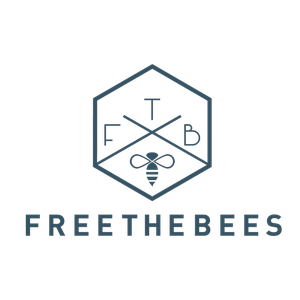Saving wild bees together: Your commitment matters
The whole of Switzerland
Year-round
Environment
Many people know the western honeybee (Apis mellifera) only as a honey provider, but it is much more than that. Originally native to our forests, it has adapted to natural environmental conditions over 10,000 years. Today it is highly endangered in the wild in Switzerland. The loss of old trees with natural cavities, diseases such as the Varroa mite and intensive beekeeping are among the factors that severely affect them.
In order for honeybees to form stable populations again, they must be able to adapt naturally to environmental changes and require suitable habitats. They depend on our support. We must give them back the place in nature that is rightfully theirs. But their protection is currently still being subordinated to economic interests and ideologies.
FREETHEBEES is committed to preserving the honeybee in the wild and therefore promotes its original habitat: the tree cavity. We are investigating whether honeybee colonies can survive for multiple years in the wild, what factors influence their increased mortality and what is needed for them to form stable populations again. This is not only about protecting honeybees themselves, but also about preserving natural biodiversity.
Because tree cavities are not only a habitat for honeybees – many other animal species such as countless insects, birds and bats also depend on them. To achieve these goals, we work with two key projects: Swiss BeeMapping and the project ”Tree cavities – biodiversity for the forest”.
For this, we rely on the support of volunteers.
Duration of assignment:
- Variable, from one hour to one day
- After consultation with project management, planned individually within a specific period, one-time or recurring
- The observations take place during the growing season from March to October
Location:
- Throughout Switzerland
Procedure:
- You define with project management which tasks you would like to undertake
- You observe the activities at the nesting site or check the condition of the cavity, possibly take photos, and record data on the observations, the cavity, its inhabitants, and the surroundings
- You plan your deployment individually
- The collected data will be transmitted digitally by you to FreeTheBees
Introduction:
- You will receive an introduction from the project team in advance
Support:
- If you have any questions, the project team will support you
Tasks:
- The volunteers visit an assigned tree cavity or bee nest during an agreed-upon period.
- You observe the activities at the nest site or at the entrance hole of the cavity, take photos and record data on the observations, the cavity and its inhabitants.
- The collected data is recorded digitally on site whenever possible and transmitted immediately, or converted to a digital format at home and then sent to the organization. Depending on the internet reception at the location.
- The visit to the cavity can be integrated into an excursion (hike / walk).
Requirements:
- For the basic observations, no knowledge is necessary and all interested parties can sign up. The observations take place from a distance without contact with the bees.
- Enjoyment of nature
- Reliability
- Basic knowledge of handling smartphone, tablet, GPS tracking
Language (for the project)
German, French, Italian (written only), English
Project language
German, French, Italian, English

FREETHEBEES is a non-profit organization dedicated to protecting the honeybee in the wild with passion and expertise, and advocates for species-appropriate and natural husbandry where honeybees are kept as livestock. In a world where bees are increasingly under pressure, FreeTheBees highlights important aspects and solutions that can ensure the long-term survival of the honeybee. The organization’s solutions are innovative, independent and interdisciplinary. This creates incentive systems and training for sustainable beekeeping for nature enthusiasts and beekeepers, provides transparent information to the public on the subject and enhances the habitat of bees and many other species.